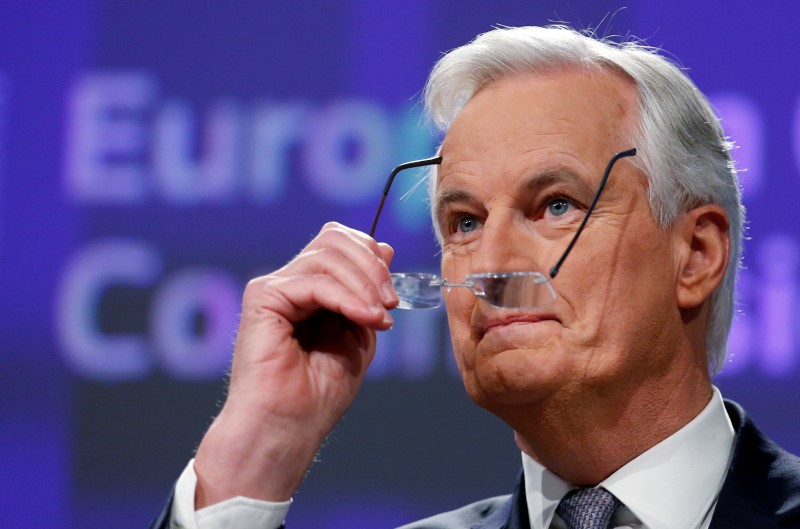This post was originally published on this site
https://i-invdn-com.akamaized.net/news/LYNXMPED1B05P_M.jpg
“There has been no significant progress since the start of these talks,” Barnier told reporters in Brussels on Friday after the conclusion of the final week of negotiations before Prime Minister Boris Johnson meets top EU officials. “We have less than five months to reach agreement.”
Both sides had hoped to make significant steps forward this week but were thwarted by deep disagreements on the most crucial issues: fishing rights, a level playing field for business, and the role of European judges in overseeing any deal.
With a tacit acknowledgment the two negotiating teams have run out of road, it will now be up to political leaders to provide fresh impetus. Johnson is scheduled to meet European Commission President Ursula von der Leyen later this month.
The end of June marks the deadline for both sides to ask to extend the negotiating period beyond the year-end, something the prime minister has repeatedly ruled out doing.
If Johnson and von der Leyen can have a constructive meeting, they will trigger intensive work between the U.K. and EU over the coming months, although no further rounds of negotiations have yet been scheduled.
Germany’s ambassador to the bloc, Michael Clauss, warned this week the deliberations could drag on through October, spelling months of uncertainty for businesses and consumers.
The two sides have clashed over what measures will be needed to ensure a level competitive playing field between the two sides as well as over the EU’s demand to have the same access as it has today to U.K. fishing waters, which are among the most fertile in Europe.
Despite an intense focus this week on fishing, a discussion officials wanted to wrap up by the end of this month, there is still huge disagreement. The British are pressing for the EU to back down from its demand to maintain the status quo, which benefits countries like France and Spain. Instead, the U.K. wants to grant access through annual negotiations. The EU says there can be no overall trade deal without an agreement on the issue.

